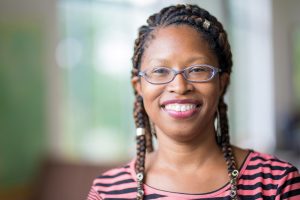
NEW PUBLICATIONS
In 2018, look for a new anthology, Listening to the Movement: Essays on New Growth and New Challenges in Restorative Justice (Wipf and Stock, forthcoming), edited by Zehr Institute co-director Carl Stauffer and Ted Lewis, with the Center for Restorative Justice & Peacemaking at the University of Minnesota. The book collects diverse voices of RJ practitioners around the themes of developments, applications and current barriers to integrity.
“Pick up this book to explore the idea that restorative justice can no longer be confined to the realm of programs that serve clients,” says Stauffer. “Rather, it is becoming a social movement that promises significant social transformation on many societal levels, connecting systemic change with frameworks for individual and relational heart-change. Chief among those unfolding changes are matters of race relations and community empowerment.”
The book stems from a three-phase grant-funded project that included a facilitated consultation in 2015 of RJ leaders who grappled with future scenarios of where the field may be headed, as well as a larger conference in 2016, “Restorative Justice in Motion: Building a Movement.”
Find a copy of the Restorative Justice Listening Project Report, published in fall 2017, to hear what more than 130 RJ practitioners are saying about the state of the field. Listening sessions were hosted in communities in northern California, Minnesota, The Navajo Nation, Baltimore/Washington D.C./Virginia, and British Columbia in Canada. Report co-authors include lead listening session facilitator Sonya Shah with the Ahimsa Collective; Sarah King MA ‘17, victim assistance and restorative justice unit at the Minnesota Department of Corrections; and the Zehr Institute’s Carl Stauffer.
NEW CO-DIRECTOR
This summer, Professor Johonna Turner joined Professor Carl Stauffer as a co-director of the Zehr Institute, founded six years ago. Professor Howard Zehr will be emeritus director and advisor.
At EMU, Turner continues as assistant professor of restorative justice and peacebuilding, teaching undergraduate and graduate students. She and Stauffer will lead a strategic planning process in the fall to reassess the institute’s vision and mission. Additionally, Turner will facilitate a multi-year initiative called ByLD, an acronym for Black Youth Leadership Development, which includes creative writing workshops in six cities across the United States, an anthology of RJ-themed writings, and youth trainings to promote and build a network of youth RJ practitioners.

FIRST ONLINE CLASS
Among the 20 participants in the Zehr Institute’s first online course on law enforcement and restorative justice was Pam Cytrynbaum, a veteran RJ practitioner and investigative journalist, formerly the executive director of the Chicago Innocence Center. She is now in a new role as restorative justice coordinator for the James B. Moran Center for Youth Advocacy in Evanston, Illinois. The Moran Center is working to create a collaborative restorative justice hub and exploring the development of a restorative justice community court for Chicago’s North Shore, similar to the pioneering RJ community court that opened last year across the city in North Lawndale.
A longtime fan of Howard Zehr and the institute, Cytrynbaum was drawn to the course because of co-facilitator Vanessa Westley, a lieutenant with the Chicago Police Department. “Vanessa Westley is renowned and revered in the Chicago RJ community because of her incredibly rare position as a veteran law enforcement officer and a deeply committed leader of restorative practices,” Cytrynbaum said. “I appreciated how she made the philosophy of RJ a practical, do-able experience, which has helped me tremendously in focusing on what I could do, how I should begin, what my obstacles would be and how to engage the community in a collaborative way.”
Cytrynbaum would like to pursue graduate studies at EMU, but for now, courses and webinars are convenient professional development and networking opportunities. The spring course drew participants from two countries, eight states, and Washington D.C., representing invested advocates – lawyers, police, community organizers, teachers and a judge.
“I got a ton of practical information from speakers and participants,” she said. “Law enforcement representatives especially offered hugely helpful advice on how to engage with local police to begin restorative conversations; how to work within the law enforcement hierarchy; and how important it is to allow the work to grow organically. I also learned how to engage the whole community and how crucial it is to work with and not for community members and stakeholders.
For more information on upcoming courses and webinars, visit www.zehr-institute.org